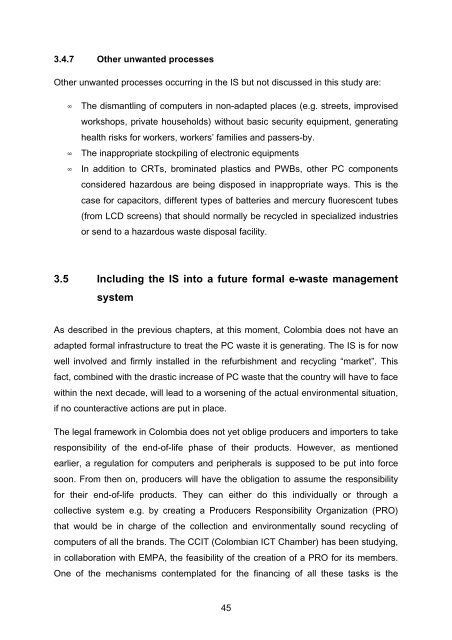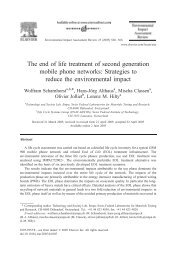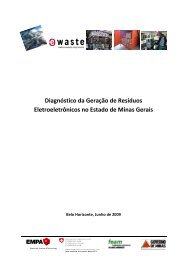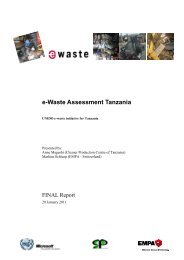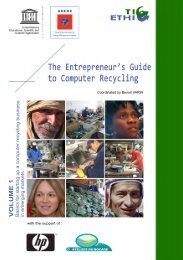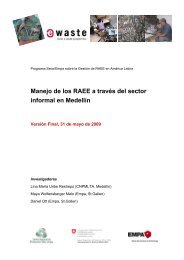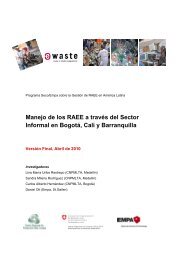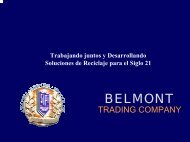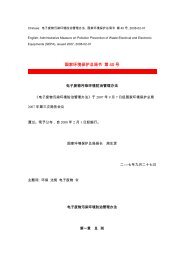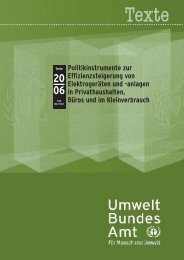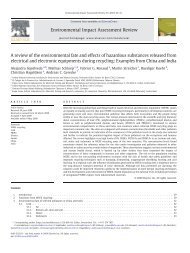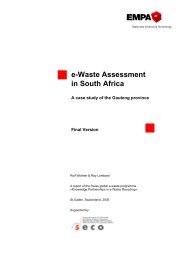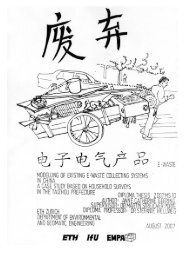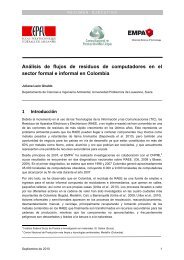10 07 29 Master thesis Juliana Leon - e-Waste. This guide
10 07 29 Master thesis Juliana Leon - e-Waste. This guide
10 07 29 Master thesis Juliana Leon - e-Waste. This guide
Create successful ePaper yourself
Turn your PDF publications into a flip-book with our unique Google optimized e-Paper software.
3.4.7 Other unwanted processes<br />
Other unwanted processes occurring in the IS but not discussed in this study are:<br />
• The dismantling of computers in non-adapted places (e.g. streets, improvised<br />
workshops, private households) without basic security equipment, generating<br />
health risks for workers, workers’ families and passers-by.<br />
• The inappropriate stockpiling of electronic equipments<br />
• In addition to CRTs, brominated plastics and PWBs, other PC components<br />
considered hazardous are being disposed in inappropriate ways. <strong>This</strong> is the<br />
case for capacitors, different types of batteries and mercury fluorescent tubes<br />
(from LCD screens) that should normally be recycled in specialized industries<br />
or send to a hazardous waste disposal facility.<br />
3.5 Including the IS into a future formal e-waste management<br />
system<br />
As described in the previous chapters, at this moment, Colombia does not have an<br />
adapted formal infrastructure to treat the PC waste it is generating. The IS is for now<br />
well involved and firmly installed in the refurbishment and recycling “market”. <strong>This</strong><br />
fact, combined with the drastic increase of PC waste that the country will have to face<br />
within the next decade, will lead to a worsening of the actual environmental situation,<br />
if no counteractive actions are put in place.<br />
The legal framework in Colombia does not yet oblige producers and importers to take<br />
responsibility of the end-of-life phase of their products. However, as mentioned<br />
earlier, a regulation for computers and peripherals is supposed to be put into force<br />
soon. From then on, producers will have the obligation to assume the responsibility<br />
for their end-of-life products. They can either do this individually or through a<br />
collective system e.g. by creating a Producers Responsibility Organization (PRO)<br />
that would be in charge of the collection and environmentally sound recycling of<br />
computers of all the brands. The CCIT (Colombian ICT Chamber) has been studying,<br />
in collaboration with EMPA, the feasibility of the creation of a PRO for its members.<br />
One of the mechanisms contemplated for the financing of all these tasks is the<br />
45


